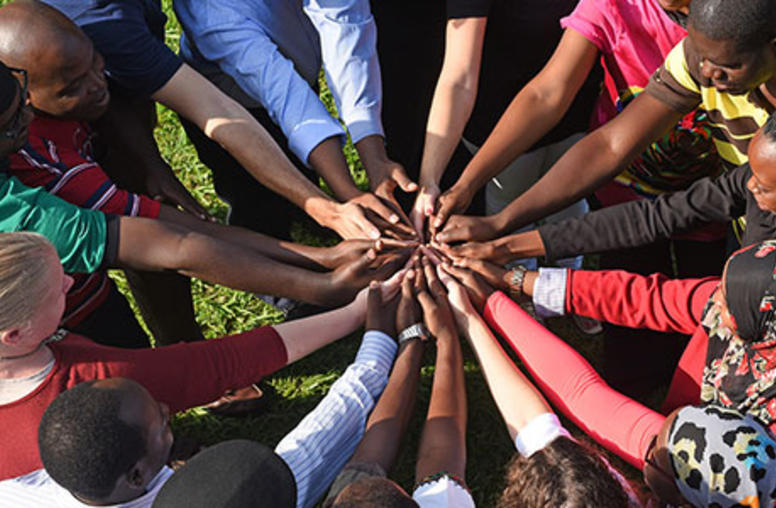The U.S. Institute of Peace and His Holiness the Dalai Lama have joined to strengthen the abilities of youth leaders to build peace in the world’s most violent regions. In September 2022, USIP and the Dalai Lama hosted the fifth dialogue with youth peacebuilders drawn from countries across the globe. Many of these countries face the world’s deadliest wars, as well as campaigns by extremist groups to incite youth to violence. These leaders are among their countries’ most effective peacebuilders. The dialogue with the Dalai Lama helped them to build the personal resilience they need to work against the tensions or violence in their homelands.
The Problem
The world’s most violent conflicts are being fought within its most youthful populations. In the five countries that suffered nearly 80 percent of recent deaths from violent extremism (Syria, Iraq, Afghanistan, Pakistan and Nigeria), half of all people are younger than 22. It is the youth of such countries that ISIS, al-Shabab and other extremist groups recruit for violence via the internet, social media and religious messengers. Breaking this pattern requires leadership from within the younger generations being targeted—a principle increasingly recognized by the international community, including the United Nations Security Council in 2015. These youth peacebuilders often face powerful forces driving conflicts in their countries toward violence, and they even may face threats of suppression or violence.
The Project
Few world leaders can understand these youth peacebuilders’ experiences as fully as His Holiness, who at age 15 was thrust into the leadership of his people as they faced the traumas of war. Like some of the participants, he fled his country as a refugee and has lived for years in exile.
In Dharamsala, the youth leaders shared their experiences and ideas on improving their communities’ abilities to manage conflict nonviolently, notably by drawing on human values of compassion and their communities’ own resources. They held dialogues with the Dalai Lama on ways to build inner strength for their work. They also conducted exchanges with local youth and were trained in prejudice reduction, leadership, and conflict management.
In 2016, Washington Post columnist Michael Gerson called the dialogue in Dharamsala "a singular event." It expands the effectiveness of the participants as they work to transform conflicts at home into peaceful change. It provides a platform for greater international advocacy of youth priorities in peace and security. It expands the global impact of youth peace leaders and of USIP’s community of Generation Change Fellows.
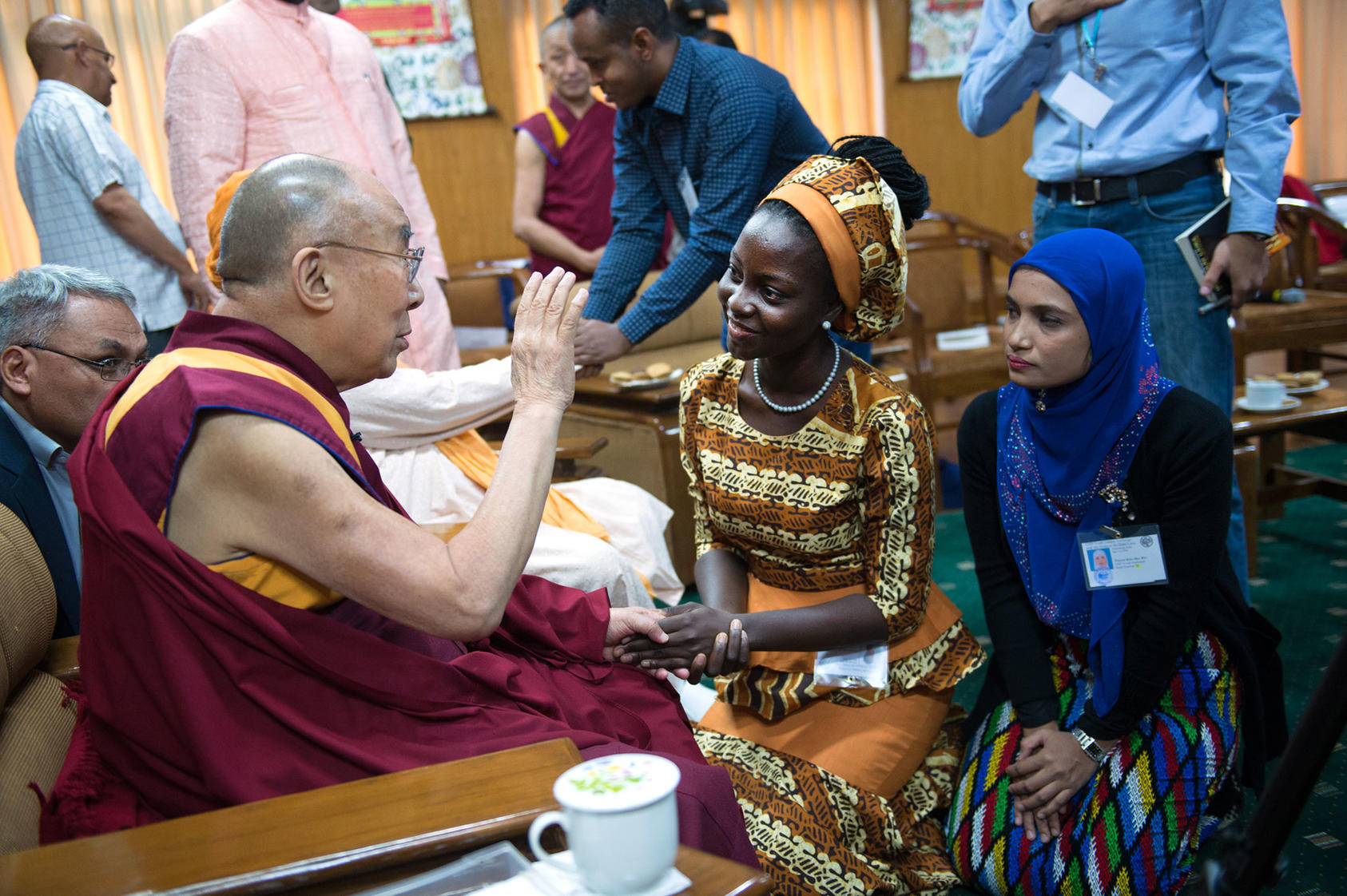
The Youth Peace Leaders
Participants in this program, in their 20s and early 30s, are young peacebuilders. Many have faced war or been uprooted by it. Some have lost friends or family to bloodshed; others have lived in exile as refugees. Out of a commitment to ending or averting violence in their countries, these leaders have founded or guided projects that build bridges across social divides—whether between tribes, religious groups or genders. Their work includes mediating conflicts and training others to do so; helping refugee communities; and documenting human rights violations and war crimes.
Listen to a one-hour radio special about the program recorded on location in Dharamsala, India, produced by America Abroad/PRI: "Outer strife, inner peace: Lessons from the Dalai Lama."
Meet some of the participants

The Dalai Lama’s Lessons on How to Build Peace
Darine Abdulkarim is Generation Change fellow and a medical doctor from Sudan who works on the physical and psychological rehabilitation of internally displaced women and their reintegration into society.
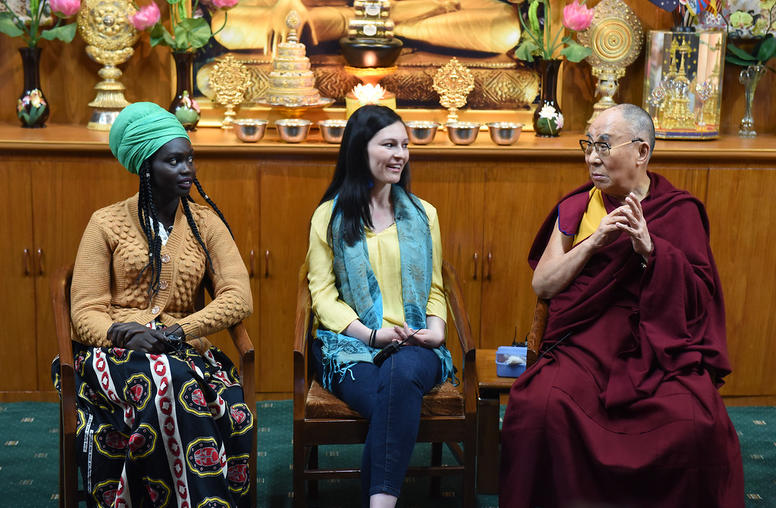
My Generation Will Bring Peace to the World
South Sudan’s Aluel Atem created a women’s development organization, Crown the Woman-South Sudan, and helps other civil society organizations advocating for women and children’s rights.
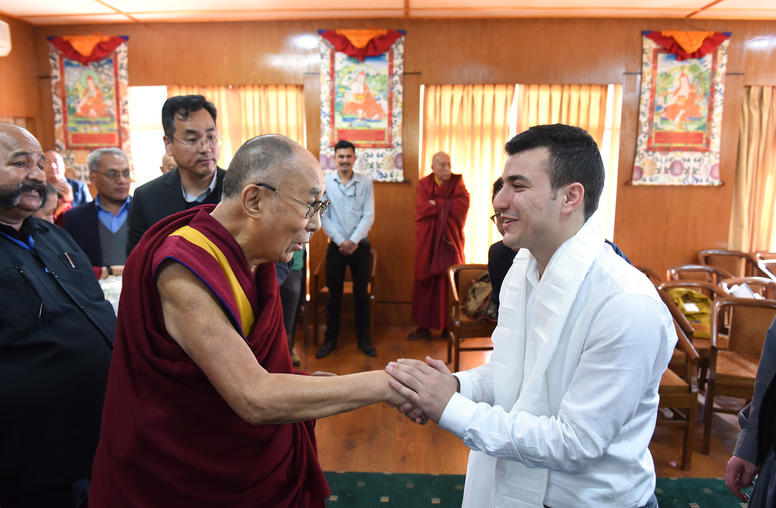
A Young Refugee Reflects on Meeting the Dalai Lama
Mahmoud Khalil, a refugee living in Lebanon, is a Syrian-Palestinian-Algerian student majoring in computer science and working with an international education-focused NGO called Jusoor. He was a key member of a team of young people that founded an innovative education program for out-of-school Syrian refugee children in Lebanon.
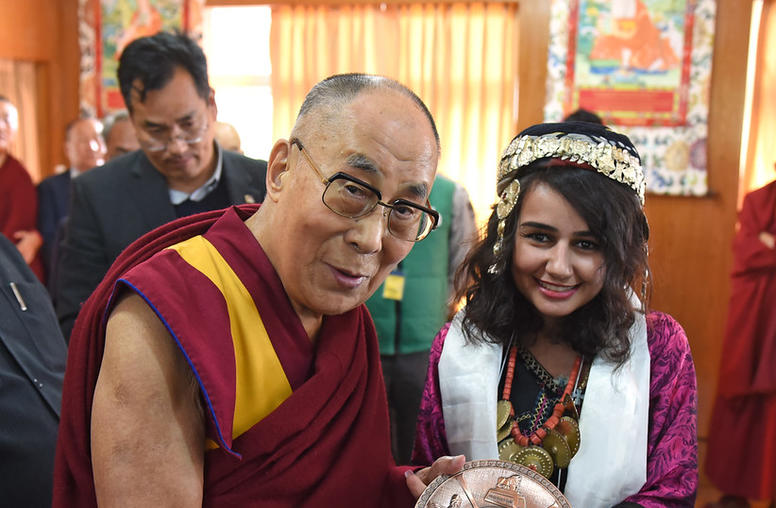
Letter from Erbil: The Dalai Lama's Message for Iraq
Lourd Hanna, an Iraqi health sciences graduate, co-founded a youth-led organization that works to heal divisions among Iraq’s ethnic and sectarian communities. Lourd, a member of Iraq’s Chaldean Catholic minority, lives in Erbil, in Iraq’s Kurdistan region.


